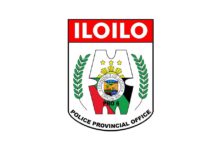
ILOILO City – Beginning Sunday, Oct. 29, until election day on Oct. 30, the Commission on Elections (Comelec), along with the Philippine National Police (PNP), will implement a liquor ban.
The sale, purchase, serving, and consumption of alcoholic beverages in public places will be prohibited throughout the Philippines during this period.
The Comelec resolution explicitly states, “It shall be unlawful for any person, including owners and managers of hotels, resorts, restaurants, and other establishments of the same nature, to sell, furnish, offer, buy, serve, or take intoxicating liquor anywhere in the Philippines.”
The PNP, National Bureau of Investigation, and local Comelec officers will implement the ban.
But Jonathan Sayno, Election Assistant II of Iloilo City Comelec, clarified that foreign tourists staying in hotels, resorts, restaurants, and similar establishments certified as “tourist-oriented” by the Department of Tourism (DOT) are exempted.
“Ginabawal ang pag-consume, pagdala, pag-transport, pag-sell, and pagbakal, tanan bawal. Except kon ang isa ka restaurant or ginadayuhan sang tourist makuha sila sang exemption from Comelec. Basta registered as tourism accommodation or certified sang DOT nga naga-cater sa mga turista kag dapat magkuha sia sang certification,” Sayno told Panay News.
DOT-accredited establishments can continue to serve alcoholic beverages during the liquor ban period, provided they have sought exemption from their local Comelec offices before the said dates.
“Indi buot silingon nga paggusto na sia baligya. Ang mga turista lang ya baligyaan, indi ang mga Filipino. Ngaa indi ang Filipino? Basi mag-hangover karon sila kag indi magboto kay ang foreigner ya wala man na ya nagaboto diri,” Sayno added.
Does liquor ban cover fiestas, festivals?
Sayno confirmed that fiestas, festivals and other events are covered by the liquor ban.
“Covered gid ya, wala gid sang exemption except for tourists,” he clarified.
As of this writing, Sayno said that many DOT-accredited establishments have come to his office to apply for an exemption certification.
He emphasized that the liquor ban is being implemented a day before and during the elections to ensure that voters are in the right mental state and to avoid possible commotion or violence.
By preventing incidents of violence, vote-buying, and undue influence related to alcohol consumption, the government aims to maintain the integrity of the electoral process and create a peaceful and fair environment for voters to express their choices.
“The Commission on Elections sternly reminds the candidates to be role models of good citizenship by strictly adhering to the applicable laws and issuances relative to campaigning,” said the Comelec.
Penalties
The penalties for violating this ban are severe.
Offenders can face imprisonment for one to six years without probation and may also be permanently banned from holding public office. It is crucial for both citizens and businesses to adhere to this regulation to avoid these consequences.
“Anyone found violating any of the provisions may face the penalty of imprisonment of not less than one year, but not more than six years without probation,” according to the PNP.
On the other hand, Sayno advised voters to go to the polling centers early so that the election ends sooner, especially since it will be held manually, where voters have to write the names of the candidates.
Voting hours are from 7 a.m. to 3 p.m. on Monday.
“In the event ang isa ka polling place madamo sang nagahulat sang maboto, let us say quarter to 3 p.m. kag wala pa sila makaboto, basta ara lang sila area within the 30-meter radius, ilistahon ina sang poll clerk kag paga-botohon,” said Sayno.
After being listed and given the number, the poll clerk will call out the voter’s name three times to enter and vote.
If they fail or cannot enter the polling precinct after their name has been called three times, they will not be allowed to vote at any later time.
And if by 3 p.m. there are no more registered voters, the electoral boards can declare “voting closed” and proceed with the counting.
In the region, around 6.9 million registered voters are expected to cast their ballots for the barangay sang Sangguniang Kabataan (SK) elections.
As of June 2023, 5,179,738 were registered to vote in the barangay election and 1,764,423 in the SK election, based on the results of the hearing conducted by the Election Registration Boards.
Of the total number, 332,903 registered voters, including 96,466 SK voters, are in Iloilo City./PN





